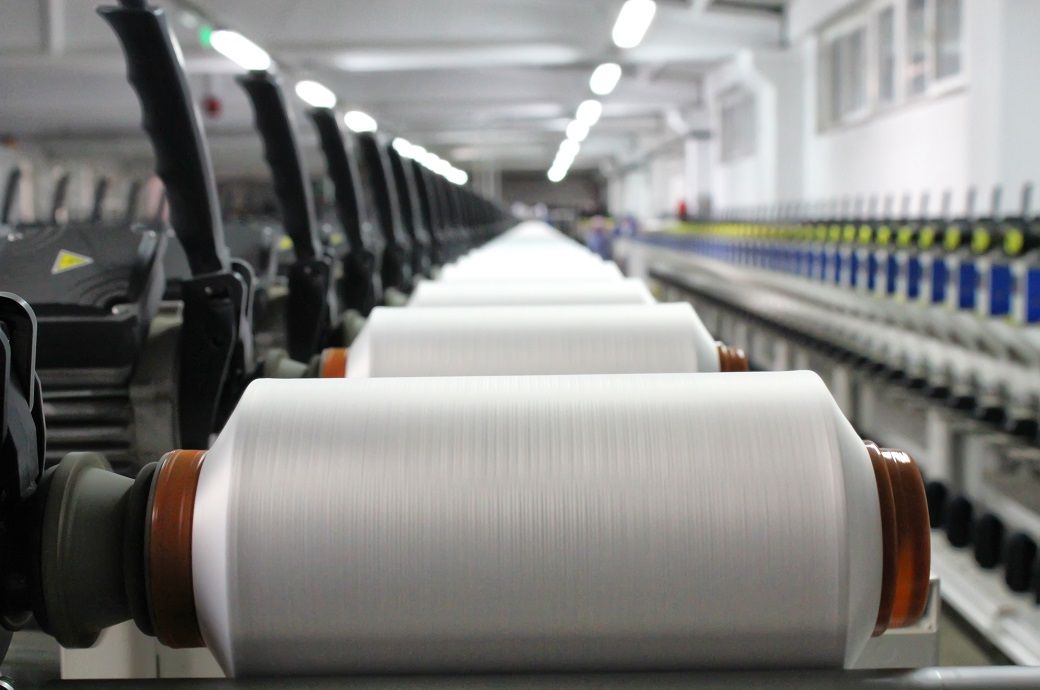
Viscose yarn prices dropped by ₹2–3 per kg in the Surat and Mumbai markets, with both experiencing sluggish demand and increased availability. A trader from the Mumbai market told Fibre2Fashion, “Viscose yarn imports have risen in the last couple of weeks, as domestic viscose yarn is costlier by 5–6 per cent. Slow demand from the consumer industry has also pressured sellers to lower their prices.” Another trader from Surat added that imported viscose yarn of good quality is cheaper than domestic produce, making it more attractive in the local market.
In Mumbai, imported 30 count viscose vortex yarn was priced at ₹203-207 (approximately $2.37-2.42) per kg; and local 30 count ring-spun viscose yarn at ₹204-209 (approximately $2.38-2.44) per kg.
In Surat, 30 viscose compact yarn (local) was sold at ₹218-220 (approximately $2.55-2.57) per kg (GST extra) and 30 viscose vortex yarn at ₹204-205 (approximately $2.38-2.39) per kg.
Surat’s polyester yarn market also witnessed a decline of ₹1 per kg across most polyester yarn varieties and counts. Weaker demand encouraged sellers to offer lower prices to attract buyers. According to market sources, polyester yarn prices dropped following a price cut in virgin polyester fibre, reducing the production cost of polyester yarn. Buyers remained cautious about fresh purchases due to uncertainty sparked by the beginning of the tariff war.
In Surat market, 30 count polyester spun yarn was traded at ₹143-144 (approximately $1.67-1.68) per kg (GST extra); 40 count poly spun yarn at ₹156-157 (approximately $1.82-1.83) per kg; 50/48 fully drawn yarn (FDY) at ₹114-115 (approximately $1.33-1.34) per kg; 75/72 FDY at ₹104-105 (approximately $1.21-1.23) per kg; 75 bright yarn at ₹106 (approximately $1.24) per kg.
Polyester yarn prices remained steady despite a steep price cut in virgin polyester fibre in Ludhiana. Polyester-cotton yarn was also sold at previous levels. The country’s major producers have reduced prices of virgin polyester fibre by ₹4 per kg, as crude oil prices saw a steep fall over the past fortnight following the tariff war between the US and China. According to traders, polyester spun yarn prices may decline in the coming days, as cheaper fibre will provide scope for a price cut. The market witnessed slower demand for man-made and blended yarns due to global trade tensions. Recycled polyester fibre also eased by ₹1–2 per kg after the rate cut in virgin fibre.
In Ludhiana, 30 count PC combed yarn (48/52) traded at ₹204-214 (approximately $2.38-2.50) per kg (GST inclusive); 30 count PC carded yarn (65/35) at ₹192-202 (approximately $2.24-2.36) per kg; 20 recycled polyester yarn at ₹114-120 (approximately $1.33-1.40) per kg; 30 count polyester spun at ₹153-163 (approximately $1.79-1.90) per kg (GST inclusive); recycled polyester fibre (PET bottle fibre) at ₹79-80 (approximately $0.92-0.93) per kg, and virgin polyester fibre ₹96 (approximately $1.12) per kg.
In north India, cotton prices rose by ₹10–20 per maund (37.2 kg) as daily arrivals continue to decline. Although spinner demand remains moderate, limited availability is supporting prices. Traders said cotton availability is negligible in the open market, with ginners refraining from buying seed cotton due to price disparities. The Cotton Corporation of India (CCI) is expected to fulfil the industry’s requirements, having procured 100 bales so far this season.
Cotton arrivals in north India stood at 2,800 bales of 170 kg: 100 bales in Punjab, 1,300 in Haryana, 1,000 in upper Rajasthan, and 400 in lower Rajasthan. In Punjab, cotton was priced between ₹5,620–5,630 (approximately $65.62–65.74) per maund, while in Haryana, it ranged from ₹5,520–5,560 (approximately $64.46–64.92). In upper Rajasthan, prices were ₹5,640–5,660 (approximately $65.86–66.09) per maund. In lower Rajasthan, cotton was quoted at ₹53,600–54,800 (approximately $625.88–639.89) per candy (356 kg). Seed cotton prices ranged from ₹7,300–7,500 (approximately $85.24–87.58) per quintal (100 kg).
ALCHEMPro News Desk (KUL)
Receive daily prices and market insights straight to your inbox. Subscribe to AlchemPro Weekly!